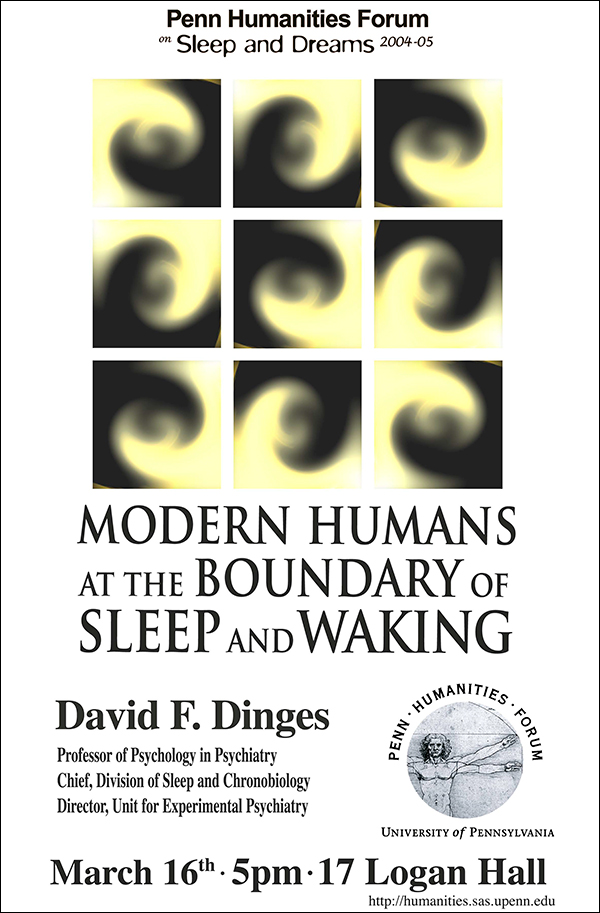In this tour of sleep and its boundary with wakefulness, internationally renowned sleep scientist David Dinges considers the complex topic of sleepiness. What brain structures are involved in sleep initiation? How does wake state instability impair cognitive activity in the sleepy brain? And what can sleep inertia tell us about why it can be so difficult to get out of bed in the morning?
David F. Dinges, PhD, is Professor of Psychology in Psychiatry at the University of Pennsylvania School of Medicine, where he directs the Unit for Experimental Psychiatry in the Division of Sleep and Chronobiology. He is a member of the Board of Directors of the American Sleep Disorder Association and a representative of the Sleep and Behavior section of the U.S. Sleep Research Society. He also serves on the Medical Advisory Board of the American Trucking Association Foundation.
Dr. Dinges has conducted and published basic and applied research on the effects of sleep deprivation and night work on human performance capability, on the role of napping to help manage fatigue (he coined the phrase "power napping"), and on the relation between fatigue and performance. He conducts research in these areas for the National Institutes of Health, the National Aeronautics and Space Administration, the Federal Aviation Administration, and the U.S. Air Force of Scientific Research. He also advises federal, state and private agencies on issues of sleep loss and transportation safety.
Professor and Director, Unit for Experimental Psychiatry
Department of Psychiatry, Penn



